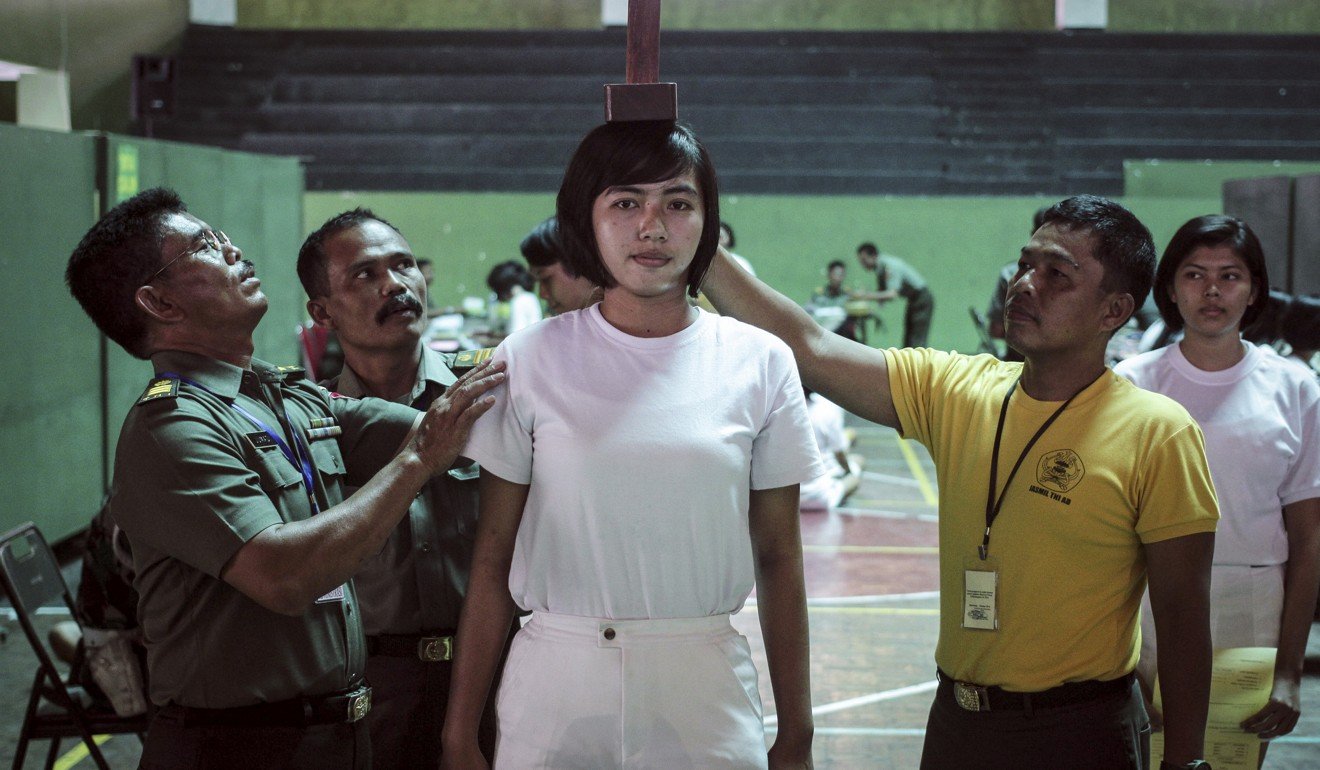
Virginity tests put Indonesian women off military service; often performed by men, they are seen as degrading
Despite Indonesia’s police force ending virginity tests on female applicants last year, the armed forces still perform the invasive procedure in a country where only 5 per cent of active soldiers and police officers are female
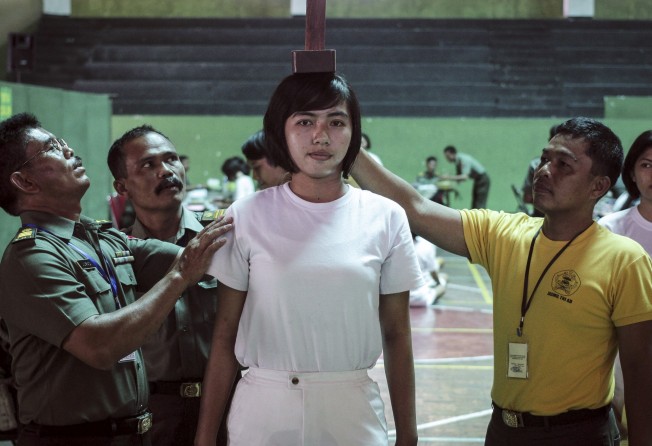
Rianti’s childhood dream was to serve in the Indonesian National Armed Forces. So when she turned 20 last year, she signed up for entry tests for a military posting in Jayapura, the provincial capital of Papua. She was told that the first day involved only administrative paperwork. When she saw women walking in and out of a small room in the test centre, though, she became curious.
“I didn’t know why they were being called into the room, but I remember the women’s expressions when they walked out. They looked grim,” says Rianti, who asks that her real name be withheld to protect her privacy.
When it was finally her turn, Rianti walked in with three other young female candidates. Inside the room, four medical staff – three men and one woman – were waiting. Rianti was told to undress and put on a gown for a health examination. She could feel her heart sink when she found out she was about to undergo a virginity test.
Once Rianti had laid down on one of the hospital beds, a male doctor inserted two fingers into the opening of her vagina to determine whether her hymen was still intact. Meanwhile, the woman on the medical team held up a flashlight while mumbling something inaudible.
“I just wanted it to be over as quickly as possible. It felt like the longest few minutes of my life. I had never been touched by a man before, it was humiliating. I was shocked,” Rianti says.

That night, she asked one of her uncles who is in the military how a male doctor could be allowed to carry out a virginity test on a woman. She told him it felt like sexual harassment. Her uncle simply dismissed her query, however, and told her that the policy had only recently changed. Now, female candidates could be tested by men.
“I felt nauseous just thinking about it,” she says.
What was worse for Rianti was that she had to undergo the virginity test twice. She says the second time was during the next step of her entry tests, in the headquarters of the National Armed Forces in Bandung, West Java province.
“It was quicker than the first time, and the doctor who checked was a woman. But I had to undress and had male doctors check other things like my skin and breasts,” says the 21-year-old.
I think many people in the armed forces are not aware that you cannot always determine whether a man or woman is a virgin or not. There’s no science behind it
Laws governing both the National Armed Forces and the Indonesian National Police state that new recruits must be physically healthy and are thus subject to a mandatory health inspection to be enlisted.
The virginity test first came under the spotlight in 2014 when a report by Human Rights Watch revealed that women applying to join the Indonesian security forces were checked not only for their health, but also for whether they had had any prior sexual experience.
Indonesia’s independent National Commission on Violence against Women condemned the virginity test, calling it an act of discrimination against women that violates the Indonesian constitution.
Moreover, passing the virginity test does not guarantee the candidate will be enrolled in the armed forces. In Rianti’s case, she says that she did not make the cut.
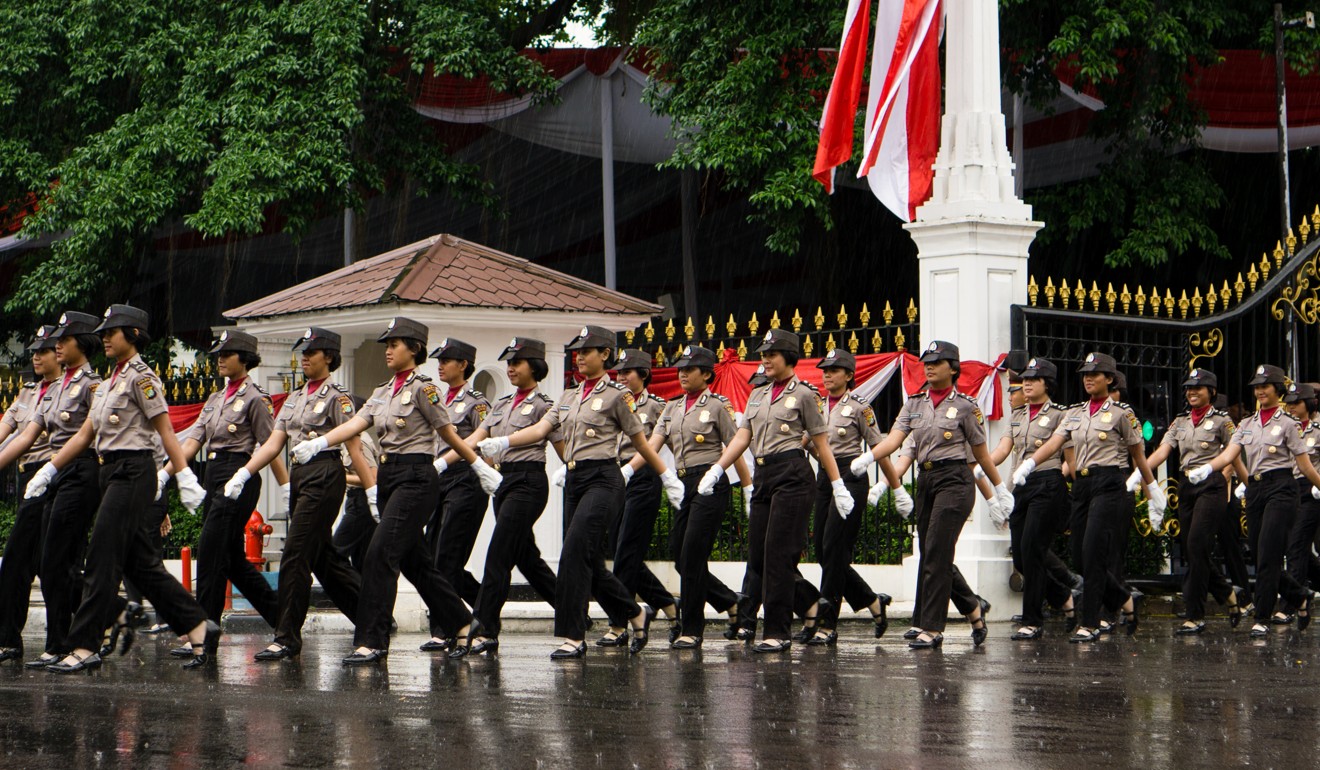
Andreas Harsono, an Indonesian researcher for Human Rights Watch, says that the practice has been going on for more than five decades. And because of the lack of female doctors in the armed forces and the police, 70 per cent of the medical staff who perform the tests are male, although they are usually accompanied by a female nurse.
“I think many people in the armed forces are not aware that you cannot determine whether a man or woman is a virgin or not. There’s no science behind it,” Harsono tells the Post.
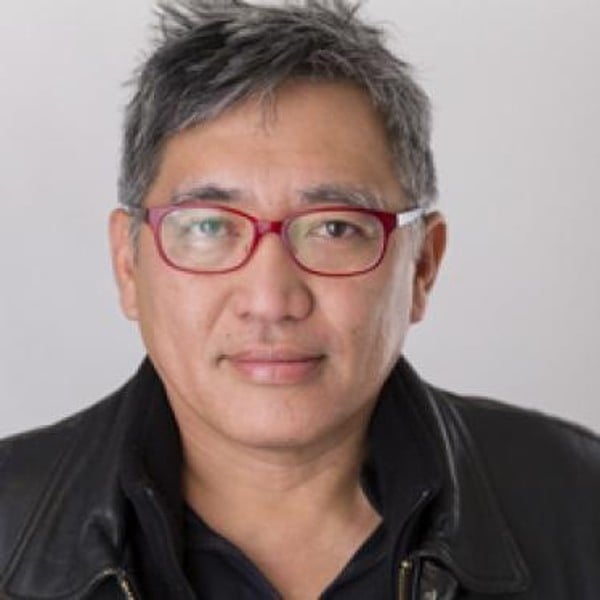
Human Rights Watch says that because the practice is degrading to women, virginity tests are a violation of human rights, according to Article 7 of the United Nations’ International Covenant on Civil and Political Rights (ICCPR) and Article 16 of its Convention against Torture. Indonesia ratified both treaties, in 2006 and 1998 respectively.
Currently only 5 per cent of personnel in both the Indonesian National Armed Forces and the Indonesian National Police are women. As of last year, according to the Global Firepower index, which ranks the military strength of nations, there were more than 435,000 active military personnel in the southeast Asian nation. Meanwhile, National Police Chief Tito Karnavian says the force employs more than 430,000 active personnel.
We want human resources who are clean and healthy because it’s for the long term and they have to face difficult terrain in the field
Fitri Bintang Timur, a researcher in the department of politics and international relations at the Centre for Strategic and International Studies in Jakarta, believes virginity tests could hurt the government’s attempt to encourage more women to join the military.
“Especially in increasingly conservative Indonesia, it will be a problem for women or their families to accept such a test,” she tells the Post. “They will see it as indecent, unless they are from a military or police background. You don’t have to go through a virginity test for other jobs.”
In June, Indonesia was elected as a non-permanent member of the United Nations Security Council. One of the country’s focus points, according to Minister of Foreign Affairs Retno Marsudi, is to increase the role of women as civil officers and as uniformed personnel in UN peacekeeping missions. As of this year, Indonesia had sent 2,694 military and police personnel on nine missions, of whom only 81 were women.
With such a grave shortage of female soldiers and police officers in the country, boosting the participation of women in international missions is difficult.
“For example, many of the UN missions need the army corps of engineers to help with building roads. Here, most of the corps’ members are men. If we have female army engineers, we’d need them in Indonesia,” Fitri says.
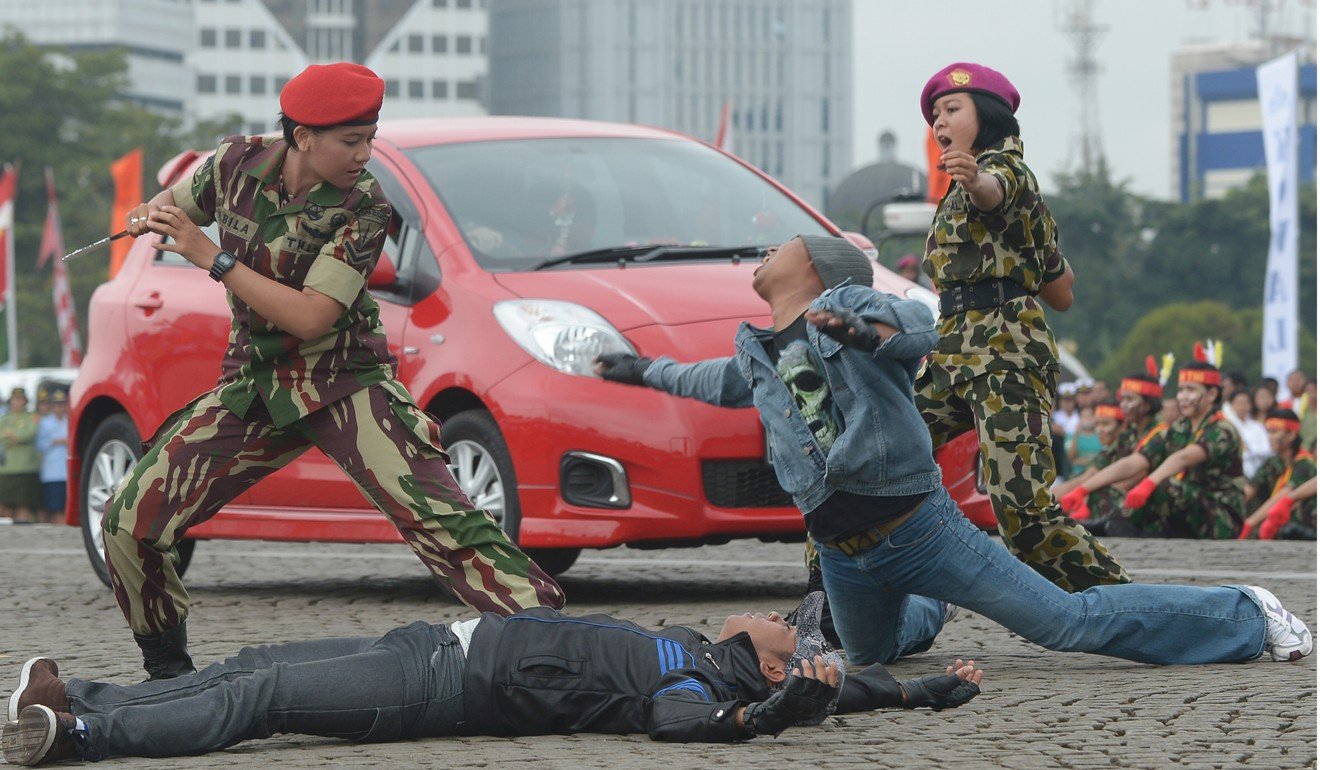
She adds that the Indonesian police force has realised that the virginity tests are a problem. Police force spokesperson Brigadier General Rikwanto said in November last year that the tests are no longer performed on female applicants.
Sri Rumiati, a retired police officer, is not fully convinced. She says that although the practice may have been abolished in the capital, Jakarta, authorities in other regions might still be subjecting women to a virginity test.
“In a country as big as Indonesia, it’s hard to detect,” she told BBC Indonesia.
While she was still working as a police officer, Rumiati says, she often urged the police to stop conducting virginity tests. She believes it is against the country’s laws that are in place to protect women from all forms of discrimination.
Meanwhile, spokesperson Major General Mohamad Sabrar Fadhilah of the National Armed Forces says the public misunderstands the issue of virginity tests.
“We do a health examination, and [the doctors] check the private parts. It’s the same for male candidates. We want human resources who are clean and healthy because it’s for the long term and they have to face difficult terrain in the field,” he tells the Post.
Rianti, who says she was traumatised by the virginity test, has no intention of applying a second time to join the army.
“Most of my friends who failed the entry test don’t want to do it again either. I don’t care if I can’t fulfil my childhood dream. I prefer to not get touched again just to be in the army,” she says.